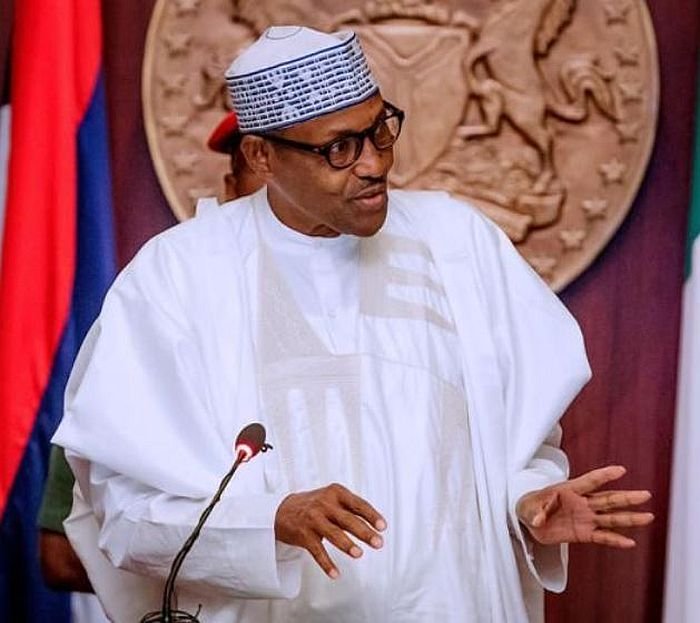Barely 436 days to the 2023 general elections, President Muhammadu Buhari is yet to sign the Electoral Act Amendment Bill 2021.
Buhari has only about 13 days remaining to sign the electoral bill.
Some influencial Nigerians are pressuring the President not to sign the bill because of their interest on electronic voting and direct primary to be conducted by political parties.
But Civil Society Organisations (CSOs) which included Yiaga Africa, International Press Centre (IPC), Centre for Citizens with Disability (CCD), Albino Foundation, CLEEN Foundation, Institute for Media and Society (IMS), Nigerian Women Trust Fund (NWTF) and Premium Times Centre for Investigative Journalism (PTCIJ) are asking the president to sign the bill on time.
On the the imperative of timely assent to the Electoral Bill 2021, the Executive Director, Yiaga Africa, Samson Itodo said for a successful conduct of any election, the legal framework, amongst other factors must be considered and urged President Buhari to sign the bill.
The CSOs said the input from the Chairman, Independent National Electoral Commission (INEC), Mahmood Yakubu; Attorney-General of the Federation and Minister of Justice, Abubakar Malami; Minister of the Interior, Rauf Aregbesola; Minister of Finance Zainab Ahmed and that of the Inspector General of the Police, Baba Alkali are needed for the president to sign the bill, the CSOs said they must be guided by public interest.
“The Presidency on 19th November 2021 acknowledged the receipt of the Electoral Bill 2021 from the National Assembly for Presidential assent. The bill contains specific provisions that are directed at enhancing the quality and credibility of elections and address certain lacunas in the existing electoral legal framework.
“Such provisions in the Bill include: Legal backing for the use of electoral technologies for the purpose of voter accreditation and electronic transmission of election results; extension of restrictive timelines for electoral activities, concise definition of over voting and the conferment of legal authority on INEC to review questionable election results.
“The undersigned Civil Society Organizations welcome the decision of the President to invite the comment of relevant Ministries, Departments and Agencies of government on the Bill.
“In this regard, the input from the Chairman, Independent National Electoral Commission (INEC), Attorney-General of the Federation and Minister of Justice, Minister of the Interior, Minister of Finance and the Inspector General of the Police are probably the most crucial.
“In their consideration of the Bill, these Office Holders should be guided by the overriding public interest to strengthen our electoral process and the consolidation of our democracy.
“It is our firm belief that the Bill in its current state will not only encourage increased citizens’ participation in the electoral process, but it will also further enhance the capacity of the democratic institutions to improve the transparency and legitimacy of electoral outcomes. Furthermore, the timely assent to the Electoral Bill 2021 will facilitate early preparations and efficient election administration of the 2023 General Election, which is just 438 days away.
“It must be emphasized that the successful conduct of any election is predicated on the certainty and clarity of the election legal framework, amongst other factors. This is to preclude any legal uncertainties that may occasion manipulation and subversion of the electoral process. It is for this reason that the African Charter on Democracy, Elections, and Good Governance and the ECOWAS Protocol on Democracy and Good Governance requires that any amendment to the electoral legal framework must be concluded at least six months to the date of election,” the CSOs said.
“The President should timeously assent to the Electoral Bill 2021 which is in congruence with the will and aspirations of the Nigerian people.P resident Mohammadu Buhari must continue to pursue and honour his commitment to bequeath to Nigerians an electoral system that guarantees the conduct of credible, inclusive and peaceful elections. Further amendments to the Electoral Bill 2021 by the National Assembly should be undertaken in the next electoral cycle based on real and perceived lacuna identified in the implementation of the current Bill,” the group added.
The Executive Director, Centre for Citizens with Disability (CCD), David Anyele, called on the National Assembly to veto the president if he did not sign the bill.
“The environment has changed. Even the sociopolitical situation in this country has changed. There is demand for the citizens to take hold of their country and be patriotic.
“What the National Assembly has done, is to speak to the yearnings and the aspiration of Nigerians. They have sent the bill to the President. If the president listen to people close to him and refused to sign the bill fast, the national assembly should redeem their image and reputation and veto the president.
“This is not the first time it has been done. The Niger Delta Development Commission (NDDC) was created as a result of vetoing the President. Therefore, it is constitutional, it is their pirogative to veto the President so that Nigerians can take ownership of the country. So that Nigeria can have trust in the framework that leads to the selection of political leaders,” Anyele said.






